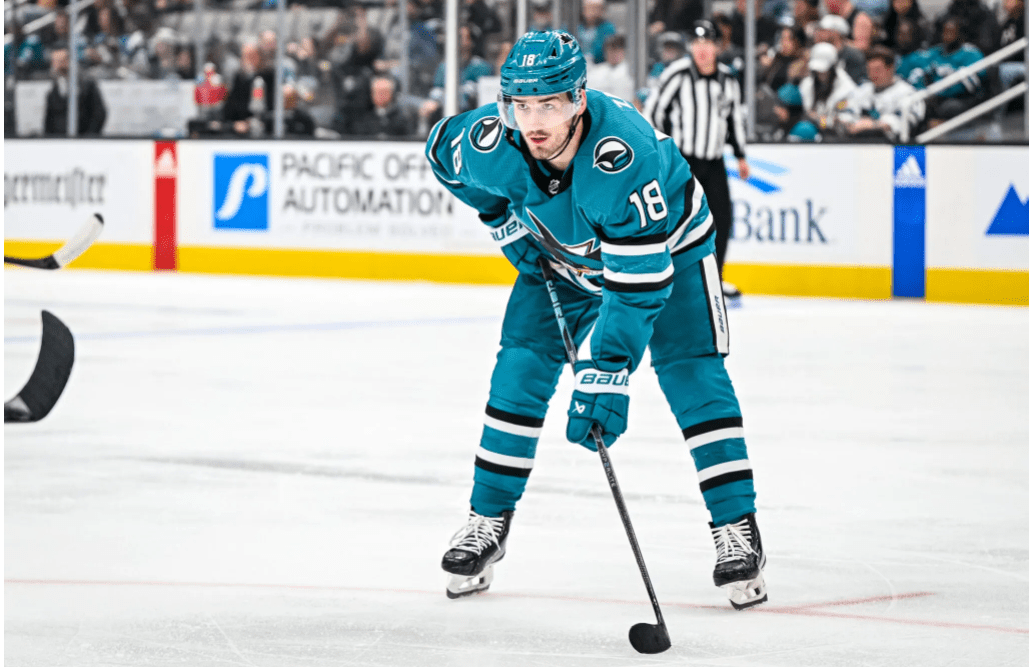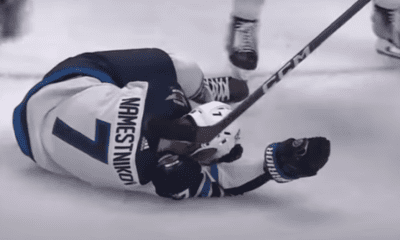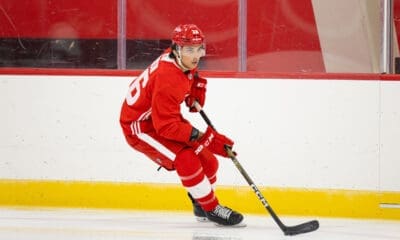Detroit Red Wings
Zadina Same Player in San Jose As He Was in Detroit

Filip Zadina was willing to give up a two-year deal worth $4.56 million with the Detroit Red Wings for the hope that a fresh start with the San Jose Sharks would allow him to blossom. He took a contract paying him $1.1 million in San Jose
That gamble, thus far, has not paid off.
But San Jose Hockey Now writer Sheng Peng wrote this week that there’s still hope for Zadina who recently turned 24. Three weeks ago, on Nov. 16, Zadina had a two-assist game against the St. Louis Blues. Afterward, Sharks coach David Quinn said: “I like the way his game is trending.”
Here’s Peng’s full review of Zadina’s first two months in San Jose.
Zadina was moved up to the second line. But shortly thereafter, he had to leave the lineup with an upper body injury that had been nagging him for a while. The Sharks finally put him on the injured list on Nov. 27. He didn’t play again until Dec. 5. He’s played two games since, one against Detroit, and has no points, averaging about 10 minutes per game.
Peng writes that Zadina’s first season in San Jose has followed the pattern in Detroit: his progress continues to be undermined by inconsistency and injuries.
Krug (47) jumps Emberson (6) pass to Zadina (18) pic.twitter.com/onaMdgsgx4
— San Jose Hockey Now GIFs (@sjhockeynowGIFS) December 7, 2023
Playing with the NHL’s lowest-scoring team (2.15 goals per game), Zadina has registered three goals and five points in 22 games. That’s a scoring rate for 11 goals and 18 points in a season. In Zadina’s best season in Detroit, he netted 10 goals.
“Zadina’s talent still is there, but so is the inconsistency,” Peng writes.
Zadina Wants to be Better
Peng says Zadina’s two-assist game against St. Louis illustrated who Zadina is a player. In addition to showing off his offensive talent on scoring plays, he made a couple of poor defensive decisions that coaches didn’t appreciate.
Just like in Detroit, coaches do appreciate Zadina’s desire, but he’s currently on the fourth line with Mike Hoffman and Jacob MacDonald
“He wants to get better,” Quinn said. “The thing that you love about him, he’s very coachable and his effort. From a coaching standpoint, that’s really all you can ask for from your players — he’s trying to do the right thing. His intentions are in the right place.
“Sometimes he can be his own worst enemy. He presses and wants to do so well. Sometimes that can be problematic.”
Where have we heard that before?















